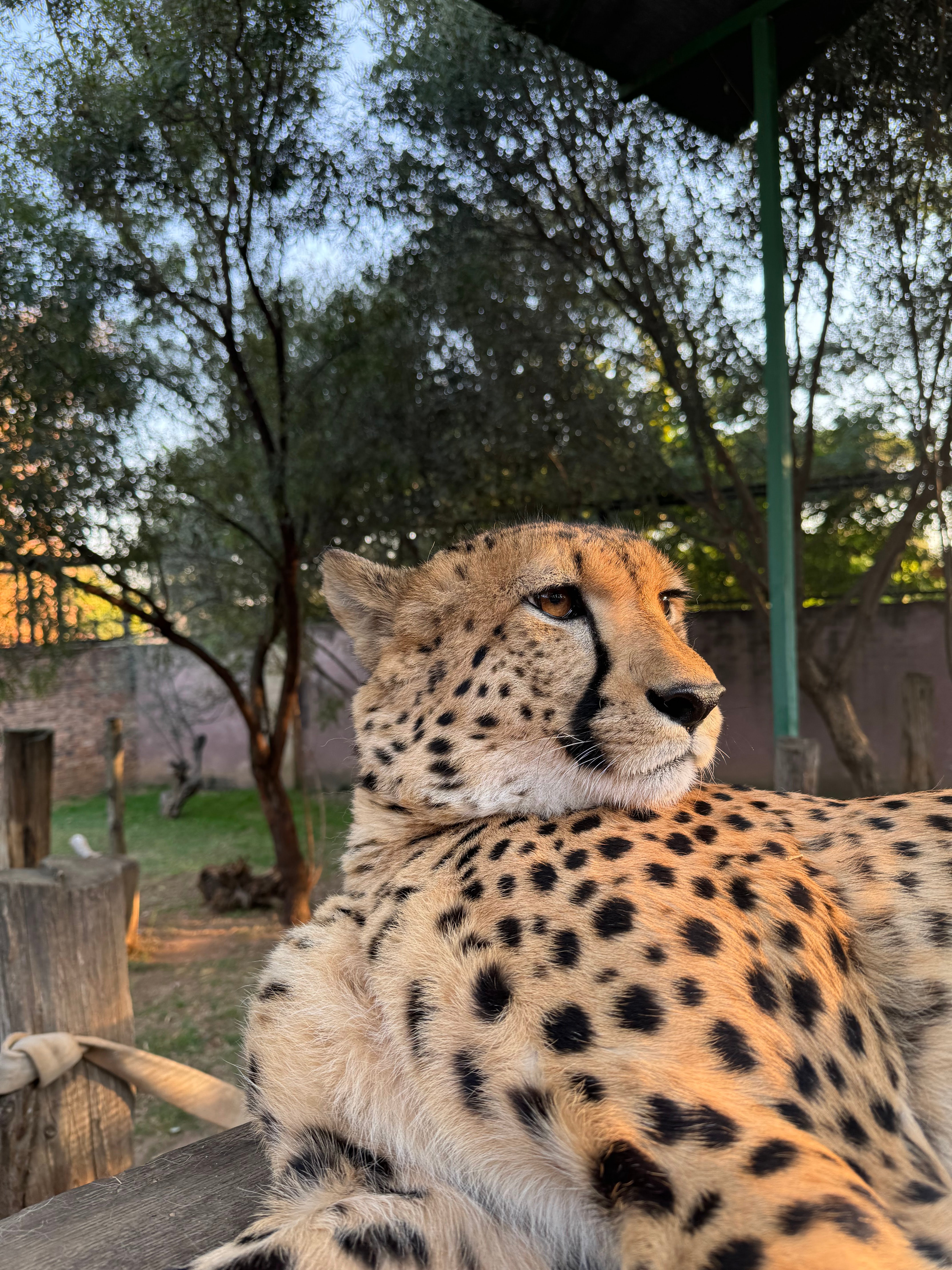
Read student reviews on GoOverseas and GoAbroad!
Want to gain a unique career experience? Ready to travel internationally with both independence and support? Consider joining one of our incredible animal internships abroad!
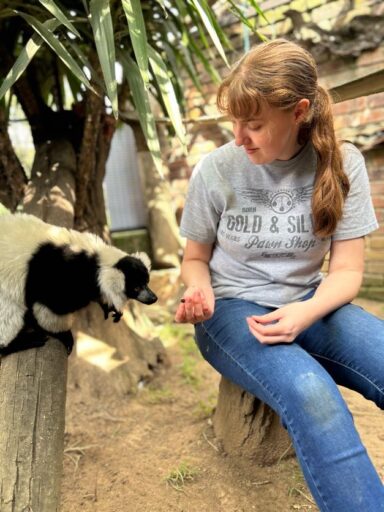
Similar to traditional internships, our animal internships abroad provide placement with one of our partner projects. Through this placement, you’ll have a set place to intern each day where you’ll shadow, observe, or assist as needed. These internships provide experience that can be used on a resume and some colleges and universities may even accept internship credit for them.
Please note that Loop Abroad internships are quite different from Loop Abroad programs. You will not have a Loop Abroad staff member with you each day, you do not have a Loop Abroad teaching vet, and you do not have activities and transportation scheduled and provided for you. Internships offer you the flexibility of traveling and exploring on your own with the safety and support of an in-country support coordinator, as well as a traditional shadowing internship placement at one of our partner projects. At all internships, you should expect to be on-site approximately 35-40 hours per week, Monday to Friday.
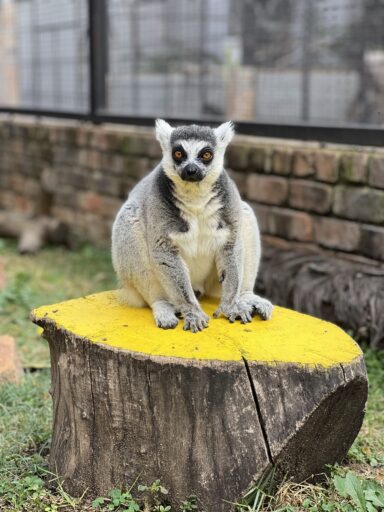
If you and a friend are applying together and would like to intern together and be housed together, please contact us at[email protected] to assist you.
All participants must be fully vaccinated against rabies and up-to-date on tetanus. No exceptions or exemptions can be made at this time. Must be 18+ to apply.
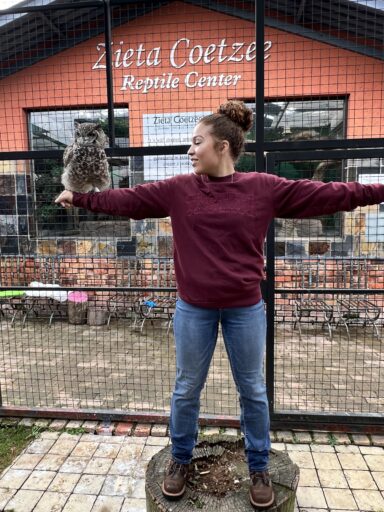
You’ll be trained to do most of the functions that a zookeeper serves, and this is a great place to learn it! Lory Park is one of only six institutions in Africa to be accredited by the Pan African Association of Zoos and Aquaria, which is indicative of their high standards of safety, veterinary care, animal diets and enrichment practices, and overall welfare of the animals in their care.
Additionally, the park is one of four African institutions granted membership to the International Zoological Educators. Loop Abroad is the only way that American students or participants can intern at Lory Park Zoo.
Lory Park is home primarily to cats, birds, primates, and reptiles. Some of the species on site include: white and tawny lions, tiger, cheetahs, serval, jaguar, leopard, lynx, caracal, ocelot, puma, black-footed cat, owls, eagles, hornbills, lorikeets, flamingos, gibbons, meerkats, lemurs, boa constrictors, pythons, chameleons, tortoises, and bearded dragons.
This internship will give interns a deeper understanding of the role of zoos and zookeepers in not online animal management but also in conservation and research.
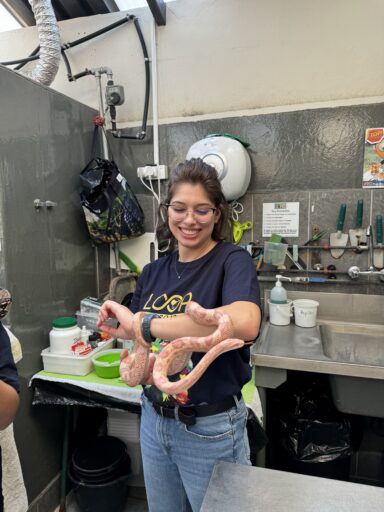
Interns who prove themselves to be capable, eager, responsible, and able to take training and direction will be able to assist with cubs and with the hand-rearing of black-footed cats, vultures, and other animals (subject to time of year and necessity) and may be given more responsibilities in caring for animals, which can include health checks, assisting the vet during operations, and handling beyond day-to-day care.
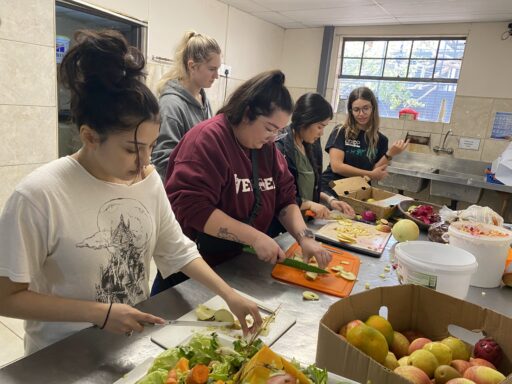
The cost of the internship is $850 USD per week.
Included: Airport transfer, housing, training, internship placement, 24/7 support, 24/7 on-site staff (you will live at the zoo).
Not included: Travel expenses, medical insurance, entertainment expenses, meals, activities for two days off per week. Zoo staff will take you shopping at least twice a week for food so that you can prepare your meals.
Please note: You will need to be accompanied by a staff member to go off-grounds, unless you are going on an organized tour.
The accommodation may be shared with other interns in a large house on-site at the zoo. There are bunk-beds in the rooms upstairs and downstairs, and a full kitchen with a fridge and microwave. There are two shared bathrooms with a shower in each. Blankets, bedding, cutlery, cooking equipment and washing machine are all supplied at no additional cost. Free wifi is available on-site.
Trips to town are available on a regular basis (twice a week) to replenish your groceries. While groceries will be your responsibility, the transport and staff to accompany you are provided.
Please note that travelers to South Africa are asked to conserve water in consideration of drought conditions, and that it is possible to lose power or wifi for short periods of time due to weather.
Midrand’s Lory Park Animal and Owl Sanctuary is located in Johannesburg, South Africa. (Johannesburg is the start and end point of our South Africa Veterinary Service program, which makes these programs very easy to join into a one-month adventure.) Lory Park is one of only six institutions in Africa to be accredited by the Pan African Association of Zoos and Aquaria, which is indicative of their high standards of safety, veterinary care, animal diets and enrichment practices, and overall welfare of the animals in their care.
Additionally, the park is one of four African institutions granted membership to the International Zoological Educators.
Lory Park opened in the year 2000 as a bird park, but quickly began accepting injured and trapped animals and has grown to be a sanctuary that is home to the following animals:
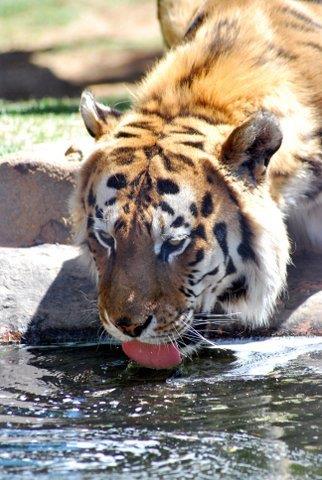 White and tawny lions
White and tawny lions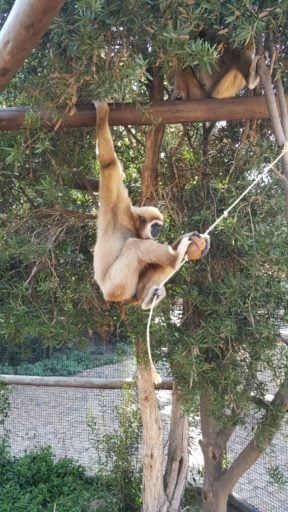 Caracal
CaracalAs you can see, cats, birds, primates, and reptiles make up the majority of the animals that you will work with at Lory Park. The park has a focus on education and conservation, and you will get the chance to visit two schools in the community to help teach about the importance of animals and conservation.
Lory Park is involved in researching and breeding black-footed cats, and students will get to observe and participate in this research. Black-footed cats are difficult to breed in captivity, so their successful breeding pair is an important contribution to the survival of this vulnerable animal whose population is decreasing in the wild.
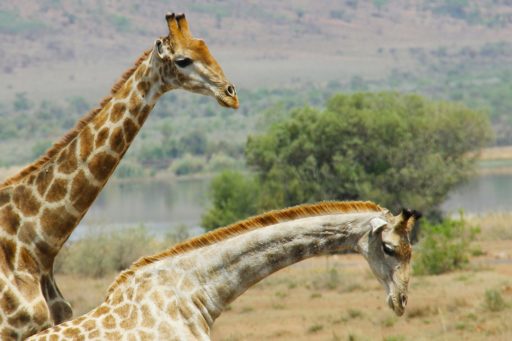
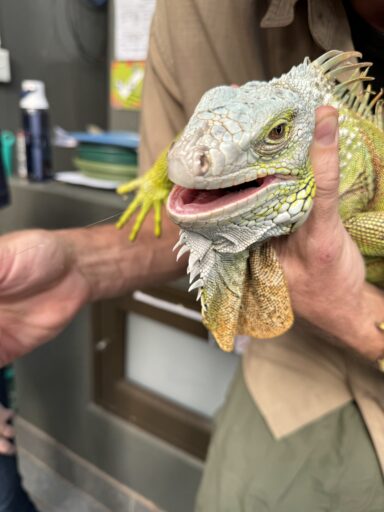
As an intern, you will be expected to work five days a week for the full day, and you will have two days a week off. On your days off, you can either stay at the zoo and relax, or you can leave the zoo either on a guided tour that you arrange or with a staff member accompanying you.
This is an example schedule of a typical day, although every day can be different: